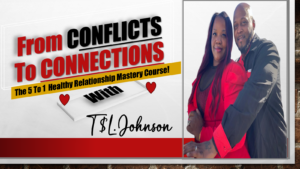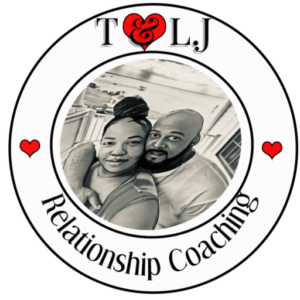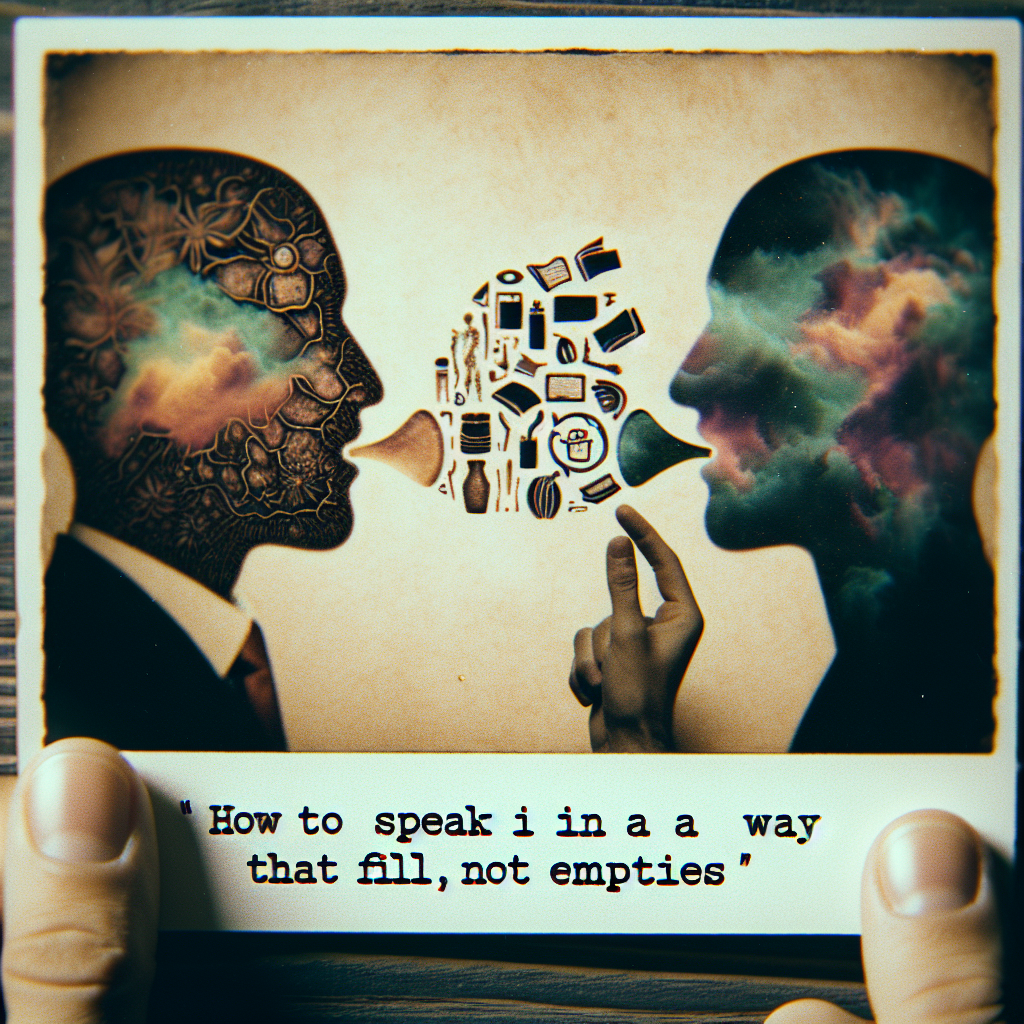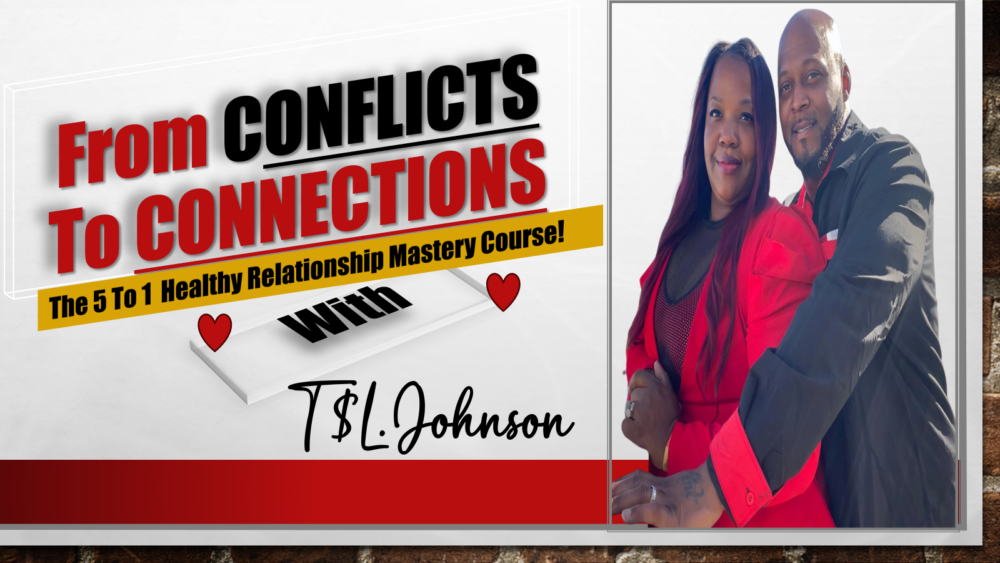1. Acknowledge Your Feelings
Understanding Your Emotions
When someone opens up about their hurt, it can hit you in the gut. I know that feeling. The first step to being able to hear them is acknowledging your own emotions. Often, we jump to defensiveness because we feel attacked, and that’s totally normal. But take a moment—what are you really feeling? Is it sadness? Anger? Fear? Recognizing these feelings helps me manage my response better.
By acknowledging my own feelings, I create space for empathy. Like, when my friend expressed disappointment over a missed opportunity, the first reaction was to explain my side. But after recognizing that I felt hurt too, I could approach the conversation with more understanding. It’s so important to truly sit with your emotions before jumping into reaction mode.
Remember, acknowledging feelings doesn’t mean acting on them right away. It’s like hitting the pause button and taking a breath. I’ve learned that this small practice can change the course of a conversation from one filled with defensiveness to a genuine dialogue.
Creating a Safe Space for Dialogue
If I want to hear someone’s hurt, I need to create a safe space for them to express it. This starts with body language and tone—making sure they know I’m here to listen, not to argue. I practice active listening and show that I’m engaged. Nodding my head, maintaining eye contact, and even verbal affirmations like ‘I see this is important to you’ can go a long way.
It also helps to eliminate distractions. When I’m having those deep conversations, I put away my phone, turn off the TV, and focus entirely on the speaker. This simple act shows the other person that their feelings matter more than anything else in that moment.
Creating that safe space can help my friends feel validated. They need to know their feelings are welcomed, not dismissed or belittled. This environment cultivates openness and trust, allowing for a more fruitful discussion.
Practice Mindfulness
Mindfulness can be a game changer. When emotions start to bubble up, I take a deep breath and ground myself in the present. I focus on the conversation and remind myself that their hurt isn’t an attack on me; it’s an opportunity for growth. Practicing mindfulness helps me not only in difficult conversations but in my daily life. It teaches me to respond rather than react.
To practice this, I often visualize seeing my emotions as waves. They rise and fall, but I don’t have to let them overwhelm me. By viewing my feelings objectively, it’s almost easier to approach the hurt being shared without taking it personally—something I really had to work on!
In the heat of the moment, it’s all too easy to spiral into defensiveness, but mindfulness becomes my anchor. It allows me to focus on the speaker’s words rather than just my inner dialogue of hurt feelings.
2. Reflect Back What You Hear
The Power of Paraphrasing
To ensure I’m actively listening, I often paraphrase what I’ve heard. This isn’t just about repeating their words. It’s about interpretation and validation. For example, if my friend says they felt abandoned during a tough time, I might respond, ‘So you’re saying you felt alone when I didn’t check in?’ This not only shows I am listening but also confirms their feelings are valid.
Paraphrasing has a double effect. It allows me to clarify the message and gives them a chance to elaborate. Perhaps they don’t feel fully understood at first, and that’s okay. By taking that extra step, I can create a back-and-forth that builds trust and deeper understanding.
Moreover, this simple technique keeps me from jumping in with my own stories or defensive reactions. I’m learning that when I focus on their words, I gain so much more insight and perspective. And trust me, it can truly deflate a tense situation!
Ask Open-Ended Questions
Engaging with open-ended questions is a brilliant way to show that I genuinely care about understanding their feelings. Instead of a simple ‘Why?’, I might ask, ‘How did that make you feel?’ This invites them to express more about their experience beyond what might have initially been shared.
Sometimes, I find myself getting caught up in wanting to “fix” the situation, but asking open-ended questions keeps the conversation flowing and turns it into a collaborative effort. It feels way less confrontational and allows them to guide how deep they want to go. Honestly, there have been times when I asked a question that opened an entire new dimension of the conversation, leading to greater clarity.
Remember, the goal is to listen, not solve. Open-ended questions lead to a more profound understanding of what they’re feeling and why. It’s all about nurturing that connection and letting them know their feelings matter.
Summarize and Validate Their Experience
Once they’ve shared their feelings, I find it incredibly helpful to summarize what I’ve heard. This doesn’t just remind them that I was listening; it validates their emotions. When I say something like, ‘It sounds like you felt hurt and disappointed when that happened,’ I’m letting them know their feelings are acknowledged and important.
Validating someone’s experience can lead to more openness. It’s astounding how powerful it is when someone feels seen and heard. This past week, after a long chat with a friend, I saw the weight lift off their shoulders after expressing their feelings and hearing me acknowledge them.
Validation doesn’t mean I have to agree with everything they say. It’s about recognizing their reality. We all have varied experiences, and acknowledging those differences creates space for understanding and healing in any relationship.
3. Manage Your Reactions
Check Your Immediate Response
Often the most challenging part about hearing someone’s hurt is managing my initial reaction. When I sense defensiveness creeping in, I try to pause and remind myself that defending my position isn’t the priority. Acknowledging my automatic reactions is a vital part of managing my response.
I remind myself that everyone is entitled to their feelings. Understanding this can transform my immediate defensive reaction into one of curiosity. Instead of saying, ‘But I didn’t mean to hurt you!’ I can pause and think, ‘What can I learn about their feelings right now?’. This shift requires practice, but it’s incredibly rewarding.
It’s also good to have a set of go-to phrases ready for those moments. For instance, if I begin to feel defensive, saying, ‘I appreciate your honesty,’ helps me refocus on their feelings rather than my own insecurities. It’s a technique that I’ve found too helpful over time. Every time I manage my reactions, I grow a little more in the process!
Take a Step Back if Needed
Sometimes emotions run high, and it’s perfectly okay to take a step back. If I find myself feeling overwhelmed, I’ll say, ‘Can we take a breather? I want to come back to this when I can fully focus on what you’re saying.’ Taking a step back allows everyone to regroup, knowing this conversation is important and worth returning to.
This tactic not only shows that I’m interested in resolving things but also opens the door for a calmer discussion later on. The few times I’ve needed a break led to some of the most fruitful discussions I’ve had. It gives both of us the chance to reflect and approach the topic with fresh eyes.
In those breaks, I also practice self-soothing techniques. Whether it’s taking a walk, meditating, or just sipping on some tea, it helps me calm down my reactionary brain and approach the issue later with a clearer mind. Trust me; it works wonders!
Recognize Patterns Within Yourself
Understanding my patterns is crucial. I often notice I get defensive in specific situations or subjects. Taking a closer look at why I react this way helps me prepare for future conversations. Reflecting on past experiences lets me identify triggers and plan how to respond better. If I know certain topics lead me to get defensive, I can actively work on that before it happens.

Journaling has become an incredibly helpful tool for this. Each time I engage in a tough discussion, I jot down my feelings and responses afterward. This reflection allows me to catch trends in my reactions and highlights areas where I need work. Trust me, being aware of those patterns can shift the game.
This self-discovery process has opened my eyes to so much about my emotional responses. It takes patience and dedication, but recognizing my defensiveness helps me engage in vulnerable and honest conversations with others.
4. Commit to Continuous Learning
Learn from Every Conversation
Every conversation offers a learning opportunity, whether productive or challenging. I like to approach each chat with the mindset of improvement. What can I take away this time? After a meaningful discussion, I often reflect and note what went well and what didn’t, especially in how I handled their feelings.
By evaluating my performance in difficult conversations, I’m becoming more aware of areas needing growth. Perhaps I interrupted too much or could have reacted better. Understanding these details makes a massive difference in future interactions. It’s a process, but commitment to learning keeps the momentum going.
Each experience enriches my toolkit for better interactions. I pull lessons from both positives and negatives, turning every conversation into a stepping stone toward improved emotional intelligence.
Read Books and Articles on Emotional Intelligence
Knowledge is power, right? Diving into books or articles on emotional intelligence has been nothing short of transformative for me. Understanding the psychology behind emotions—both mine and others—has helped me develop empathy. There are tons of resources that can guide you in handling conversations and hearing others’ feelings.
I’ve found a particular affinity for books that blend storytelling with practical advice. They’re relatable and offer insights that I can easily apply in my life. Taking notes from seasoned experts helps me fine-tune my approach over time. The more I learn, the better I become at managing defensiveness.
In discussions with others, I can also share these insights. Conversations become richer when I can reference relatable material or examples, which fosters deeper understanding and connection. It turns into a learning experience for both parties.
Seek Feedback from Trusted Friends
Sometimes we can be our own worst critics. Seeking feedback from trusted friends or family members is an invaluable tool. I ask people I trust how they perceive my reactions. Has defensiveness shown up? Where can I grow? This honest feedback helps illuminate blind spots I may not see.
It’s a vulnerable process, but it’s so worth it. Opening that door of constructive criticism offers me new perspectives and guides my personal growth. The conversations become deeper and more genuine as I learn how my actions impact those around me.
Plus, creating a circle of accountability makes me feel more motivated to implement change. Knowing someone’s got my back encourages me to work hard on developing these essential skills.
5. Practice Self-Compassion
Be Gentle with Yourself
Learning to hear the hurt without defensiveness takes time. It’s so easy to be hard on myself when I slip up. Instead, I remind myself that everyone makes mistakes and that’s how we grow. Practicing self-compassion means celebrating my efforts and allowing room for improvement without feeling like a failure.
Whenever I catch myself being overly critical after a tough conversation, I pause and think about what I’d say to a friend in my situation. Chances are, I’d encourage them to be kind and patient with themselves. So why not do that for me? It’s a simple shift, but it changes my whole mindset.
Self-compassion becomes a robust foundation for growth. It’s easier to face my shortcomings with love rather than judgment. Accepting my imperfections allows me to learn and move forward positively!
Forgive Yourself for Past Mistakes
We’ve all had our moments, right? Moments where defensiveness took over, and hurtful words were exchanged. Rather than dwelling in that past, I choose to forgive myself. The guilt can weigh heavy, but holding onto it only stifles growth.
Understanding that my past actions don’t define me is crucial. Each mistake is a learning opportunity. I try to remind myself that I’m on a journey, and every misstep brings new insights. Forgiving myself frees me from the chains of guilt and empowers me to move forward with intention.
When I embrace this perspective, it lightens my emotional load. Suddenly, I can approach new conversations with a fresh mindset, ready to engage without the baggage of regret. It’s liberating—a necessary part of growing and improving.
Celebrate Small Wins
Lastly, I believe in celebrating my small wins! Every time I manage to hear someone’s hurt without snapping into defense mode, I take a moment to acknowledge it. These little victories matter; they build momentum toward lasting change.
Whether it’s recognizing that I didn’t interrupt during a sensitive conversation or that I successfully validated their feelings, these small moments deserve acknowledgment. They are snapshots of growth, reminding me that progress is happening, one step at a time.
Celebrating those achievements keeps my motivation high. Plus, it makes the learning journey more enjoyable! Let’s face it; learning is so much more rewarding when we recognize the effort and celebrate it along the way.
Frequently Asked Questions
1. Why is it hard to listen without being defensive?
It can be challenging because our instinctual reaction when feeling threatened is to protect ourselves. This reflex makes it easy to become defensive instead of open and empathetic during difficult conversations.
2. What can I do to prepare for a tough conversation?
Ground yourself by journaling your feelings beforehand or practicing mindfulness techniques. Also, remind yourself that it’s about understanding the other person’s experience, not about proving your point.
3. How can I encourage others to share their feelings with me?
Creating a safe space and using active listening techniques can significantly help. Show empathy and validation in your responses to encourage others to open up further.
4. Is it okay to take a break during a heated conversation?
Absolutely! Sometimes stepping back can help prevent escalation and give both parties time to process their emotions before continuing the discussion.
5. Can self-compassion really change how I respond to others’ hurt?
Yes! Practicing self-compassion allows you to be kinder to yourself and helps you grow from experiences. It creates a healthier mindset that makes it easier to listen to others’ feelings without defensiveness.

Schedule Your First 20-Minute Coaching
Call With Us Today to see if we fit . You pick the price!
Click Here






